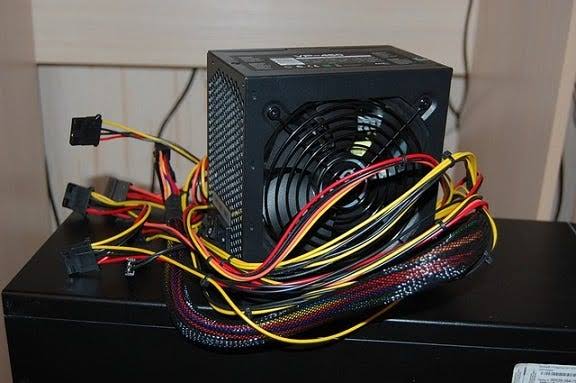A reliable power supply and effective electricity management are crucial for maintaining a stable and high-performing PC. Learn how choosing the right PSU, managing power efficiently, and ensuring proper cooling can enhance system performance, longevity, and overall reliability.
In today's digital age the power supply and electricity management in personal computers (PCs often go unnoticed. Users tend to focus on upgrading components like CPUs, RAM or graphics cards. However the stability and efficiency of a computers power supply are vital for ensuring performance, durability and reliability. Recognizing these factors can empower users to make choices that enhance their computing experience and prolong the lifespan of their systems.
Understanding the Function of Power Supply Units (PSUs)
The power supply unit (PSU) serves as a component in a computers electrical system. It transforms the current (AC) from a socket into the current (DC) required by the computers hardware. This transformation is crucial since parts like the motherboard, CPU and storage devices rely on power.
A quality power supply unit (PSU) is crucial for ensuring power delivery to a systems components. This involves not power conversion but also managing electricity to prevent fluctuations that could result in system instability or damage. The PSU needs to provide wattage to meet the combined power demands of all installed components, including peripherals like graphics cards and additional storage drives.
The Role of Supply in System Stability and Performance
Having a power supply is vital for keeping a computers reliability and performance intact. Issues with power delivery, such as fluctuations or insufficiencies, can lead to problems like crashes, application errors or hardware malfunctions. In cases power or unstable power supply can even cause damage to sensitive components.
Contemporary power supply units (PSUs) come equipped with safety and stability enhancing features like over voltage protection, under voltage protection and short circuit protection. These safeguards help shield a computers parts from harm caused by power surges or drops. A dependable PSU also plays a role, in improving overall system performance by guaranteeing that components receive a power supply which is crucial, in high performance computing situations.
Choosing the Right PSU for Your System
Choosing the right power supply unit (PSU) is essential for performance and safety. Here are some factors to keep in mind:
1. Power Needs It's crucial to ensure that the PSU can deliver wattage for all components in the system. Consider calculating the power requirements of your PC including potential upgrades and extra peripherals. Online PSU calculators can help you determine the wattage needed.
2. Efficiency Rating PSUs come with ratings that indicate their efficiency in converting AC power into DC. Higher efficiency ratings, such as those certified by 80 Plus (Bronze, Silver, Gold, Platinum, Titanium) not only save energy but also generate heat. This can contribute to a cooler and quieter system.
3. Build Quality and Reliability Opting for a PSU from a reputable brand with build quality ensures reliability and durability. Investing in a well made PSU can minimize the risk of failure and safeguard your investment in other computer components.
Electricity Management and Cooling
The management of electricity goes beyond just the power supply unit (PSU) it involves how power is distributed and utilized throughout the system. Properly managing electricity can boost efficiency and cooling. For example a power supply that regulates voltage can minimize heat caused by power loss resulting in temperatures and reduced strain on cooling systems.
Additionally organizing cables plays a role in managing electricity. Tidy cables allow for airflow inside the case improving cooling effectiveness. Effective cooling systems are crucial, for ensuring operation and avoiding overheating which could impact performance and the longevity of components.
The Consequences of Poor Power Management
Neglecting power supply and electricity management can have consequences. Unreliable power delivery might result in crashes or shutdowns disrupting work and risking data loss. Additionally over time inadequate power management could lead to wear and tear on hardware components diminishing performance or causing system breakdowns. In severe cases power related problems may even damage hardware like burnt out parts or motherboard issues. Fixing or replacing such failures can be both expensive and time consuming. Thus it's crucial to invest in a quality power supply unit (PSU) and implement electricity management practices to prevent these problems and uphold a dependable and efficient computing setup.
Conclusion
To sum up the importance of power supply and electricity management in computers cannot be overstated. These elements play a role, in determining how stable and high performing a PC is over time. Selecting a power supply and efficiently managing it helps ensure consistent power delivery shields against potential damage and boosts overall system efficiency. By focusing on these aspects users can improve their computing experience protect their hardware investments and enjoy a reliable and optimized system.
